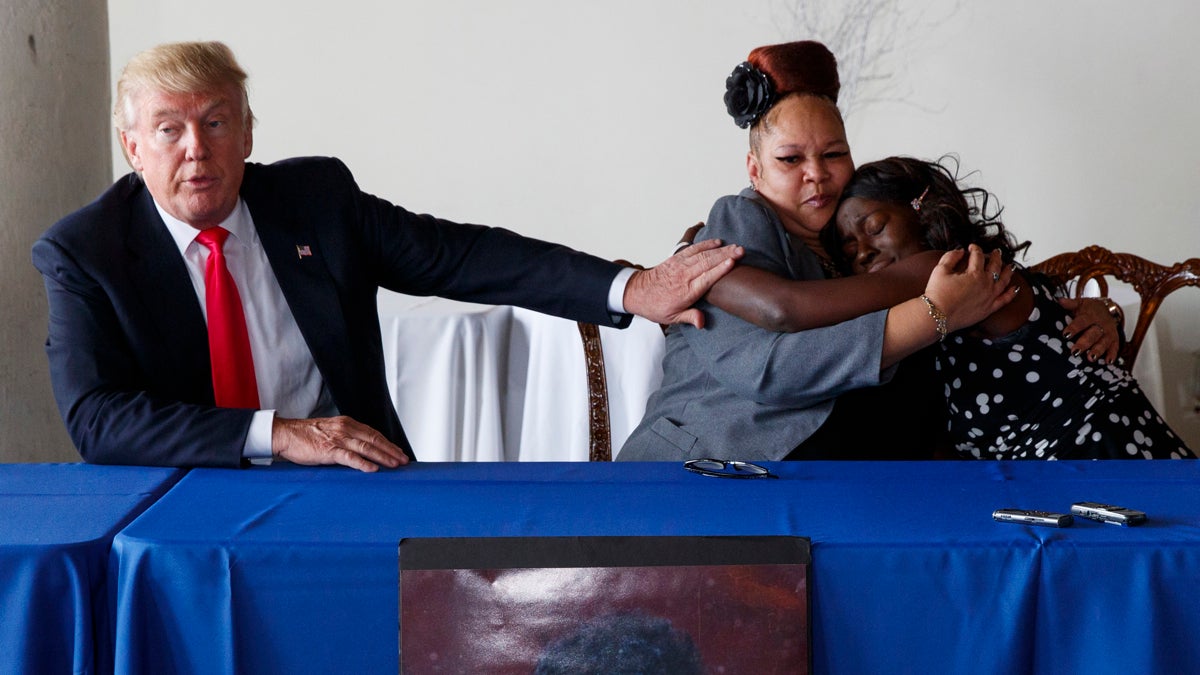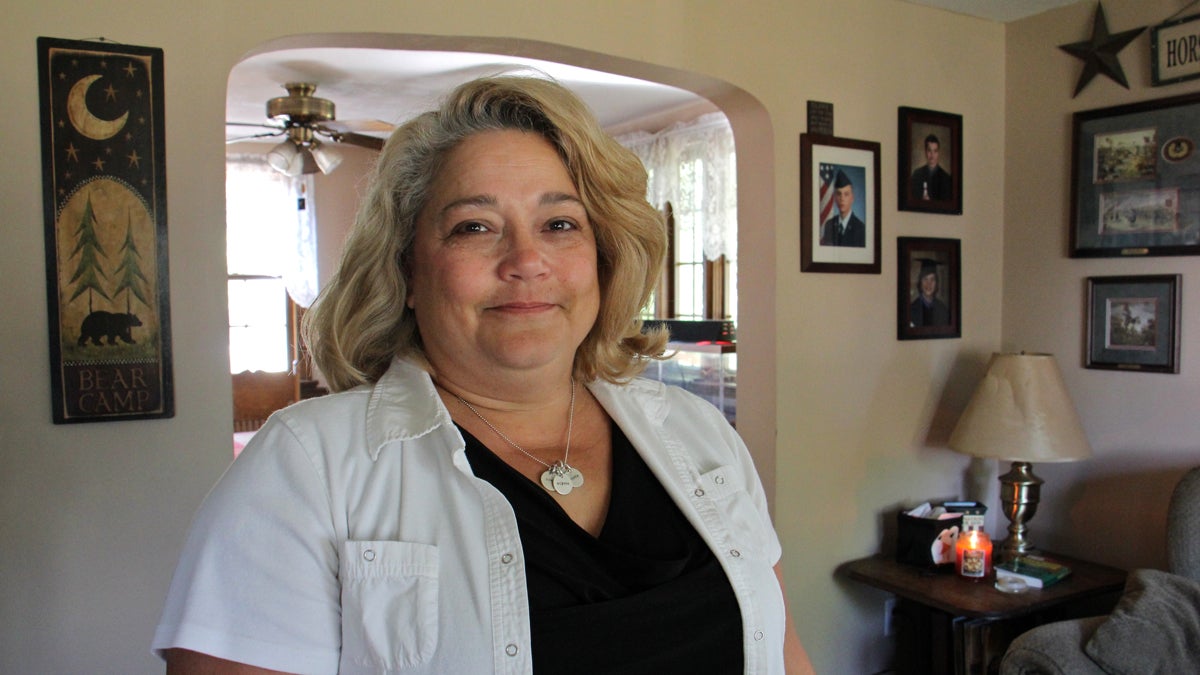Trump outreach signals sincerity some suburban women say could earn him votes
Listen
Republican presidential candidate Donald Trump comforts Shalga Hightower
Republican presidential candidate Donald Trump has been reaching out to black voters lately, but many of them have not been receptive to his message.
“What do you have to lose? You’re living in poverty, your schools are no good, you have no jobs,” Trump said during a rally in Michigan last month.
“He’s looking at us as if we’re a monolith, as if every African-American is unsuccessful, is living in deep poverty when it fact that’s not quite the case,” said Shahmar Beasley, an activist and student at Drexel University in Philadelphia. He was one of several protesters who gathered outside the Union League in Center City Wednesday where Trump was giving a speech on national security.
“He has obviously not done his research … because, if he did, he wouldn’t be making such idiotic, bigoted statements,” Beasley said.
That’s how many black and white liberal voters have reacted to Trump’s comments.
Wooing suburban women?
Trump has followed up by meeting with African-American voters in Philadelphia and Detroit. Many analysts think Trump wasn’t expecting to get black support, but hoping to make moderate whites more comfortable with voting for him — especially white suburban women such as Kathy Rusch of Hatboro.
Rusch describes herself as a moderate Republican — fiscally conservative, pro-military and liberal on social issues such as same-sex marriage.
She’s not ready to vote for Trump.
 Kathy Rusch of Hatboro is a moderate Republican who is on the fence about Trump. (Emma Lee/WHYY)
Kathy Rusch of Hatboro is a moderate Republican who is on the fence about Trump. (Emma Lee/WHYY)
At her home in Montgomery County, she was asked what she made of his recent pitch to black voters.
“I cannot imagine that what he was saying was about all African-Americans, he wasn’t talking about all people that live in poverty,” she said.
Rusch was impressed when Trump came to Philadelphia last Friday to meet with African-American leaders and visited a black church in Detroit on Saturday. She followed the events in the news and on social media, where she saw protesters with signs calling Trump a racist.
“To go somewhere where you know people hate you, to try to connect with them, I think it’s pretty brave,” she said. “And the fact that he continues to do that, that goes a long way with me.”
Rusch’s friend Lynne Fitzgerald of North Wales feels the same way, although she was more uncomfortable with Trump’s initial comments.
“I was offended. I thought it was the wrong angle,” she said. “I was offended for myself, thinking I might be voting for this man. I didn’t want people to think because I support him I think like that.”
But Fitzgerald said Trump’s follow-up visits with black voters did help.
“Not 100 percent, but I thought it was the right direction,” she said.
According to the Washington Post, a focus group found white women from the Philadelphia suburbs — a group of moderate voters referred to as “ticket-splitters” who have cast votes for candidates in both parties — had largely written off Trump, calling him a “narcissist” and a “racist.”
Hints of humility
But Fitzgerald echoed other moderate Republican women WHYY/NewsWorks spoke to who think the brash Trump campaign is turning a corner.
“There’s a certain polish about him now that I didn’t see months ago,” she said. “He’s beginning to look more air quote ‘presidential’ to me.”
Pat Mosesso, a former independent who changed her registration to Republican in 2008, agreed.
“I think he’s shown some humility,” she said. “He went in thinking he knew a lot more about everything than he really does, and now he’s trying to learn more and understand more.”
But is all this translating into more votes for Trump?
Rusch said she wants to vote for him, but doesn’t feel good about it yet.
“The truth is, right now, I don’t know that I could vote for anybody,” she said.
These conversations don’t prove there’s a trend, but Franklin & Marshall pollster Terry Madonna said Rusch and her friends are a critical voting bloc for Trump in Pennsylvania.
“He must do better and close the gap among suburban, college-educated women, which he’s not doing very well with now,” he said.
Madonna’s latest poll showed Trump trailing Democrat Hillary Clinton by 7 points in Pennsylvania.
WHYY is your source for fact-based, in-depth journalism and information. As a nonprofit organization, we rely on financial support from readers like you. Please give today.

